Hey mama-to-be! Planning for your little bundle of joy? We all know the importance of a healthy diet during pregnancy, but there's one crucial nutrient that might not be on your radar yet – folic acid.
Here's the thing: most Indian women are naturally deficient in folic acid, a B vitamin. Think about it–our traditional meals are delicious, but not always high in foods with B-complex vitamins like leafy greens and nuts which are major sources of this vital vitamin. Indians also tend to consume fortified foods less than the West as we do not prefer packaged foods for our major meals. According to a study published in the Journal of Postgraduate Medicine, nearly 50% of Indian women have vitamin B12 deficiency, and folic acid deficiency often goes hand-in-hand. This deficiency can be especially concerning when you're planning for a baby. Folic acid, a B-vitamin, is critical during pregnancy as it helps in the formation of the nervous system, spinal cord, and brain of the baby. Many women might not realise they are pregnant until they miss their period, but by then, the foetus has already started developing. This makes early and adequate intake of folic acid crucial. Read on to know everything about folic acid for a healthy pregnancy.
Table of Contents
- What is Folic Acid?
- Why do Mom’s need folic acid?
- How much Folic acid do I need?
- Which is the best option for folic acid?
- Takeaways
What is Folic Acid?
Folic acid, also known as vitamin B9, is a synthetic form of folate, a water-soluble B-vitamin. Folate naturally occurs in many foods, while folic acid is the form used in supplements and fortified foods. It plays a vital role in the production of DNA and RNA, and in the process of cell division. It also plays a critical role in the formation of your baby's nervous system – the brain and spinal cord. This development happens incredibly fast, even before you miss a period! In fact, the neural tube (the foundation for the brain and spine) closes within the first 28 days of pregnancy, often before you even know you're expecting! That's how amazing and fast your little one is growing! That's why getting enough folic acid before you conceive and throughout the first trimester is absolutely crucial. Studies by the Centers for Disease Control and Prevention (CDC) show that taking folic acid can significantly reduce the risk of birth defects like spina bifida, anencephaly, and other neural tube defects (NTDs) that affect the brain and spine.
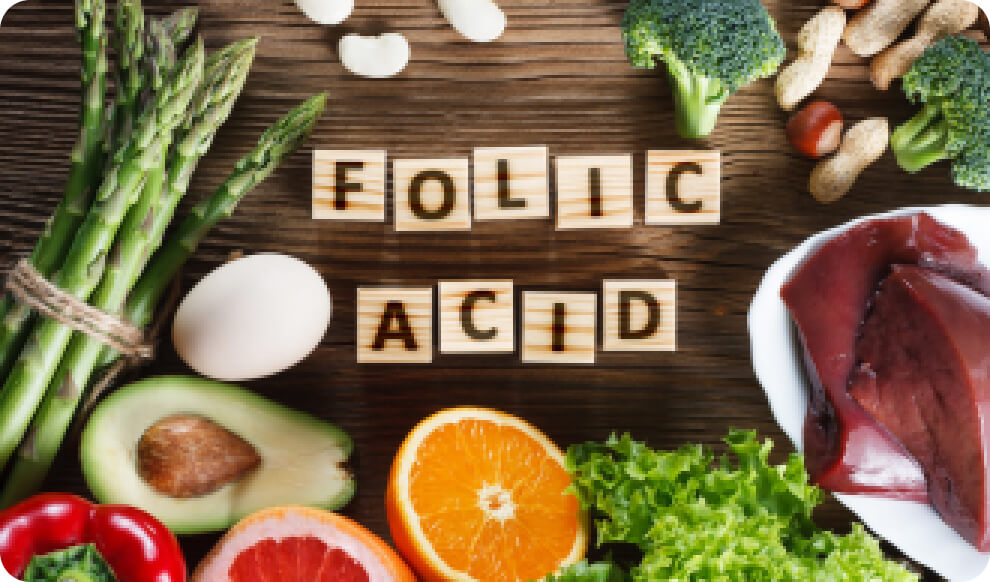
Why do Mom’s need folic acid?
Folic acid isn't just a critical requirement for your baby. It also plays a vital role in a mothers health too! Here’s what folic acid does in a mother’s body:
Supporting cell growth: During pregnancy, a woman’s body undergoes rapid cell growth to support the developing foetus. Folic acid is crucial for these processes, ensuring healthy development and growth.
Aiding red blood cell production: Pregnancy causes an increase in blood volume. Folic acid prevents anaemia, which can leave you feeling tired and weak especially in pregnancy.Reducing Pregnancy Complications: Adequate folic acid intake has been linked to a reduced risk of complications such as preeclampsia, which can be dangerous for both the mother and the baby.
Boosting mood: Folic acid deficiency is linked to depression, so keeping your levels up can help you stay positive and energised during pregnancy.
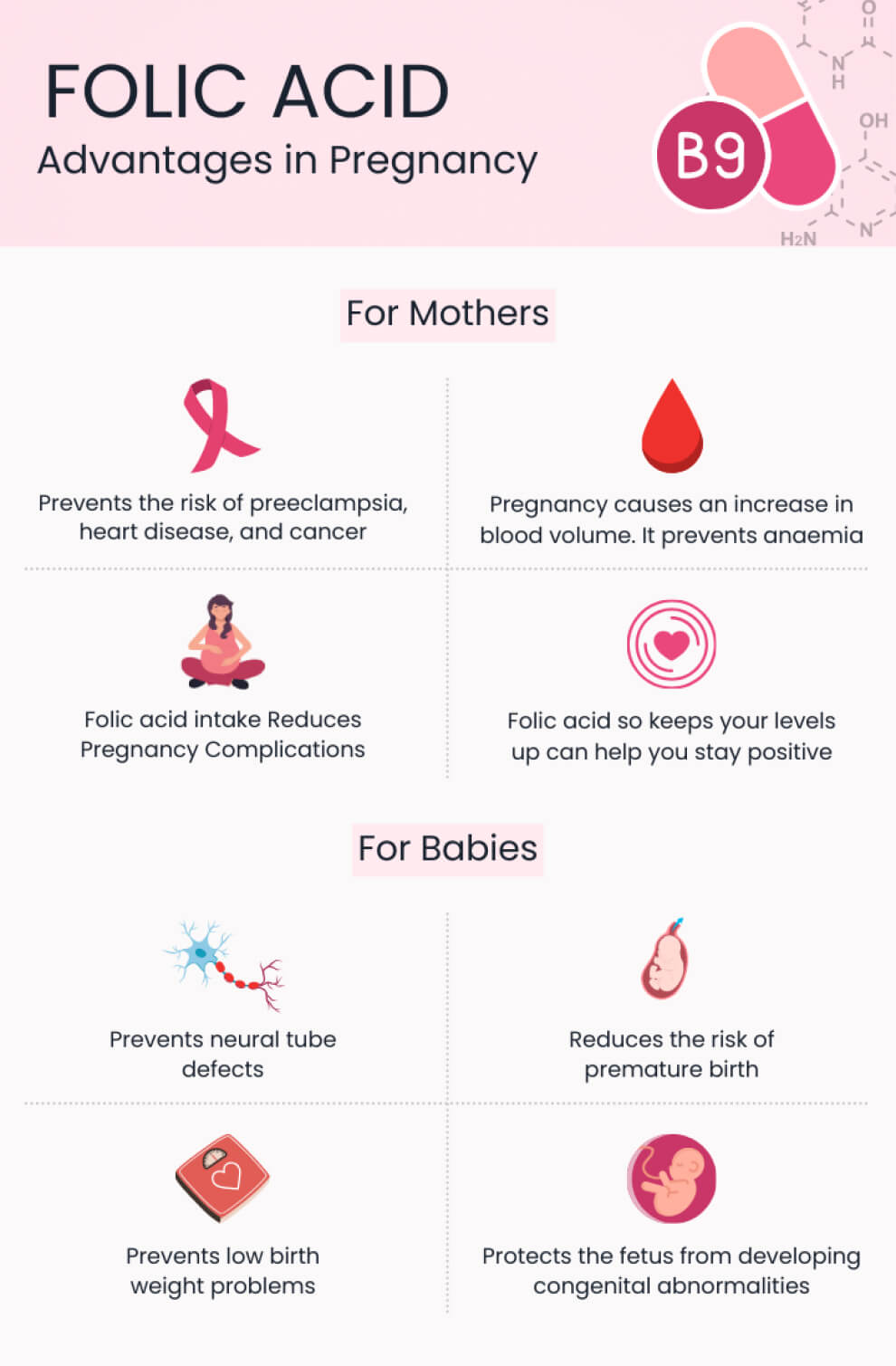
💡Did you know?
Folic Acid: More Than Just Pregnancy! Studies suggest that adequate folic acid intake might help reduce the risk of certain cancers, heart disease, and stroke
How much Folic acid do I need?
The recommended daily intake for women of childbearing age is 400 micrograms (mcg) of folic acid. Here's a breakdown for different stages:
Pre-pregnancy: Start taking folic acid at least 3 months before you try to conceive. It is recommended that women of childbearing age take folic acid supplements regularly, even if they are not planning to conceive, because many pregnancies are unplanned. Starting folic acid supplementation at least one month before conception and continuing through the first trimester is crucial.
First Trimester: This is the most critical period, so continue taking 400 mcg of folic acid daily.
Second & Third Trimesters: Many doctors recommend increasing your daily dose to 600 mcg during these trimesters to support your growing baby's needs.
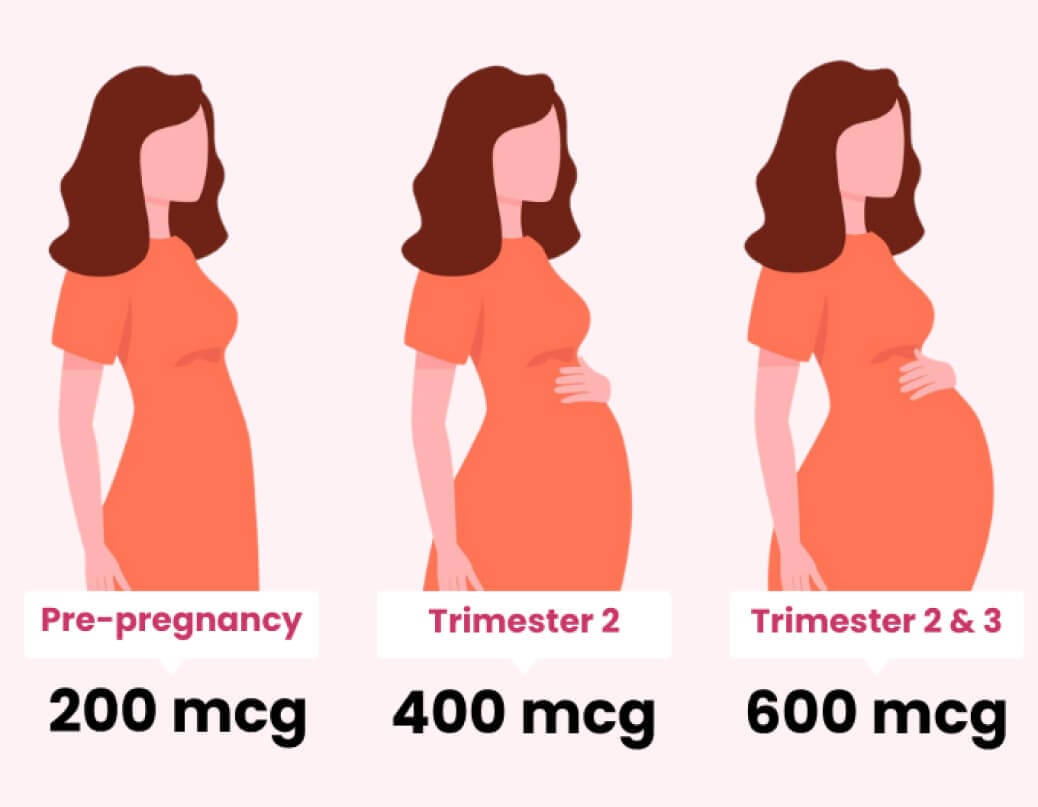
Read more on : How to consume folic acid for best effect.
Which is the best option for folic acid?
When you think about it, it might seem that folic acid occurring naturally in foods is the best way to go about it. But there are several limitations to this especially when it comes to pregnancy where you cannot take any chances. There are two ways to get your daily dose of folic acid:
Prenatal Vitamins: These multivitamins are specifically designed for pregnancy and usually contain the recommended dose of folic acid along with other essential nutrients.
Folic Acid Supplements: These are standalone supplements containing just folic acid. Talk to your doctor about which option is best for you.
Here are some tips to maximise the absorption of folic acid:
Take it with food: This helps your body absorb the folic acid more efficiently.
Avoid caffeine and alcohol: These can interfere with folic acid absorption.

But is there a natural source of folic acid? Can food do the trick too? While supplements and prenatal vitamins are the most reliable way to ensure adequate intake, you can also incorporate natural sources of folic acid into your diet. Here are some folic acid superstars to add to your plate:
Leafy Green Vegetables: Spinach, methi (fenugreek leaves), and mustard greens are packed with folic acid. Aim for at least 1-2 servings a day.
Fortified Foods: Many breakfast cereals, breads, and pastas are fortified with folic acid. Check the label to see how much each serving provides.
Beans and Lentils: These hearty options are a great source of plant-based protein and folic acid.
Citrus Fruits: Oranges, grapefruits, and lemons are all good sources of folic acid.
Nuts and Seeds: Almonds, peanuts, and sunflower seeds.
How to know if your body is absorbing folic acid? Read here!
But unfortunately the folic acid we get from these sources is a little less compared to the daily recommended dosage in pregnancy. For example: 1 cup cooked spinach provides about 263 mcg folic acid, 1 cup cooked dal provides about 358 mcg and 1 medium orange provides about 40 mcg. Which means for getting daily recommended dosage we need to have 1.5 to 2 cups of dal or spinach or 15 medium oranges daily! This is not possible so the best way is to fortify food with supplements especially in pregnancy.
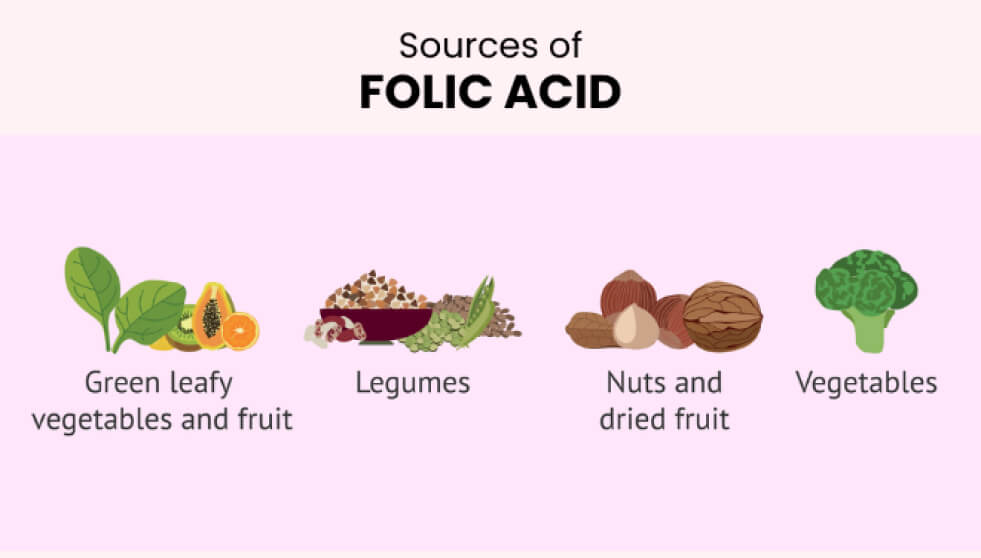
📌Point to consider 40% pregnancies are unplanned so taking a folic acid supplement is crucial for all women
Takeaways
Knowledge is power when it comes to pregnancy and motherhood and its always better to read up and do your research. By understanding the importance of folic acid and taking steps to ensure you get enough, you're giving your baby the best possible start in life. Remember, even if you haven't been taking folic acid previously, it's never too late to start! Share this information with fellow moms-to-be and spread the word about the importance of folic acid.
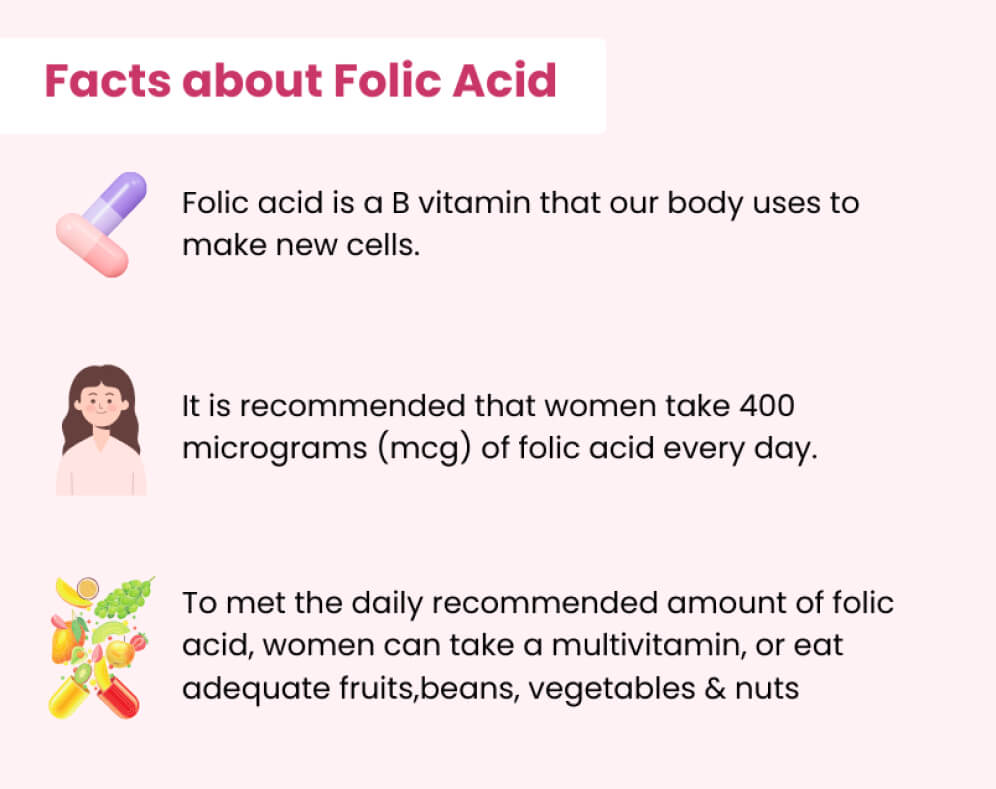
Were you aware of the importance of folic acid in your pregnancy? Let us know in the comments! Let’s support each other in this journey toward healthier pregnancies and happier babies!





